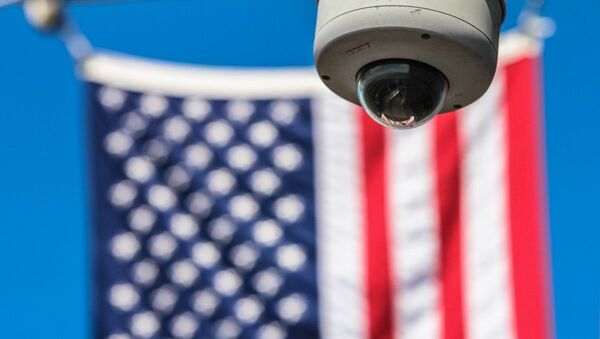The US is actively deploying a "largely invisible weapon" around the world that will increase the lethality of the US Armed Forces – a massive biometric "dragnet" that collects data on millions of people, including American servicemen and their allies, as well as suspected terrorists in active military zones, the media outlet One Zero reported, citing materials disclosed under a Freedom of Information Act (FOIA) request.
The system, which is called the Automated Biometric Information System (ABIS), is indiscriminately "vacuuming up" biometric data, like images of faces, irises, fingerprints, and DNA data on individuals anywhere that US troops are deployed, the outlet pointed out, stressing the privacy concerns arising from this fact. According to a testimony of US Defence Forensics and Biometrics Agency (DFBA) Director Glenn Krizay, the area covered by ABIS is bound to expand, making the system more "powerful by the day".
"Krizay outlines a potential scenario in which data from a suspect in Detroit would be run against data collected from 'some mountaintop in Asia'", One Zero wrote.
The documents point out several sources used to obtain the data: detainees, voter enrolments, military enlistments in partner countries, employment vetting, as well as any information given to the US military. According to the documents, the US Department of Defence has instructed troops to collect biometric data whenever possible, with the technology having in recent years been praised as a "game changer". Currently, the DFBA claims to have records on 7.4 million individuals in ABIS.
According to Kirzay, the information obtained and stored in ABIS allows US forces to "act with greater focus, and if needed, lethality" in their operations. However, information on how the Pentagon is planning to use the data remains a secret, as the US Army prohibited access to this knowledge under the FOIA request. What little is known is that individuals registered in ABIS could be flagged on a "Biometrically Enabled Watch List" (BEWL) and then identified, for example on a battlefield or in proximity to national borders, using surveillance equipment.
"Denying our adversaries anonymity allows us to focus our lethality. It’s like ripping the camouflage netting off the enemy ammunition dump", Glenn Krizay wrote in his now disclosed notes for the Identity Management Symposium.
The ABIS databases can also be plugged into custom-built military mobile devices, according to another disclosed document, allowing a person to be identified in the field. The US is military also eying expanding the system to make it available via cloud services by 2021. Krizay, however, expressed concern over defending the system from external intrusion, citing the notorious leak of the Pentagon's war logs from Iraq and Afghanistan by WikiLeaks.
"We’ve already shown we can’t secure our personnel systems. If WikiLeaks can obtain over a half a million of our reports, what can the likes of China or Russia do?" Krizay wondered in his notes.
Another concern, this time expressed by One Zero itself, is how accurate the system, which could potentially be used to identify and kill certain individuals, is. According to the US Commerce Department’s National Institute of Standards and Technology (NIST) tests, cited by the media outlet, the identification system still makes a great number of mistakes, especially when it comes to black females. Vice President of Leidos, the company developing ABIS, John Mears claims that the latest NIST tests have shown better results, but the NIST declined to confirm this to One Zero.






